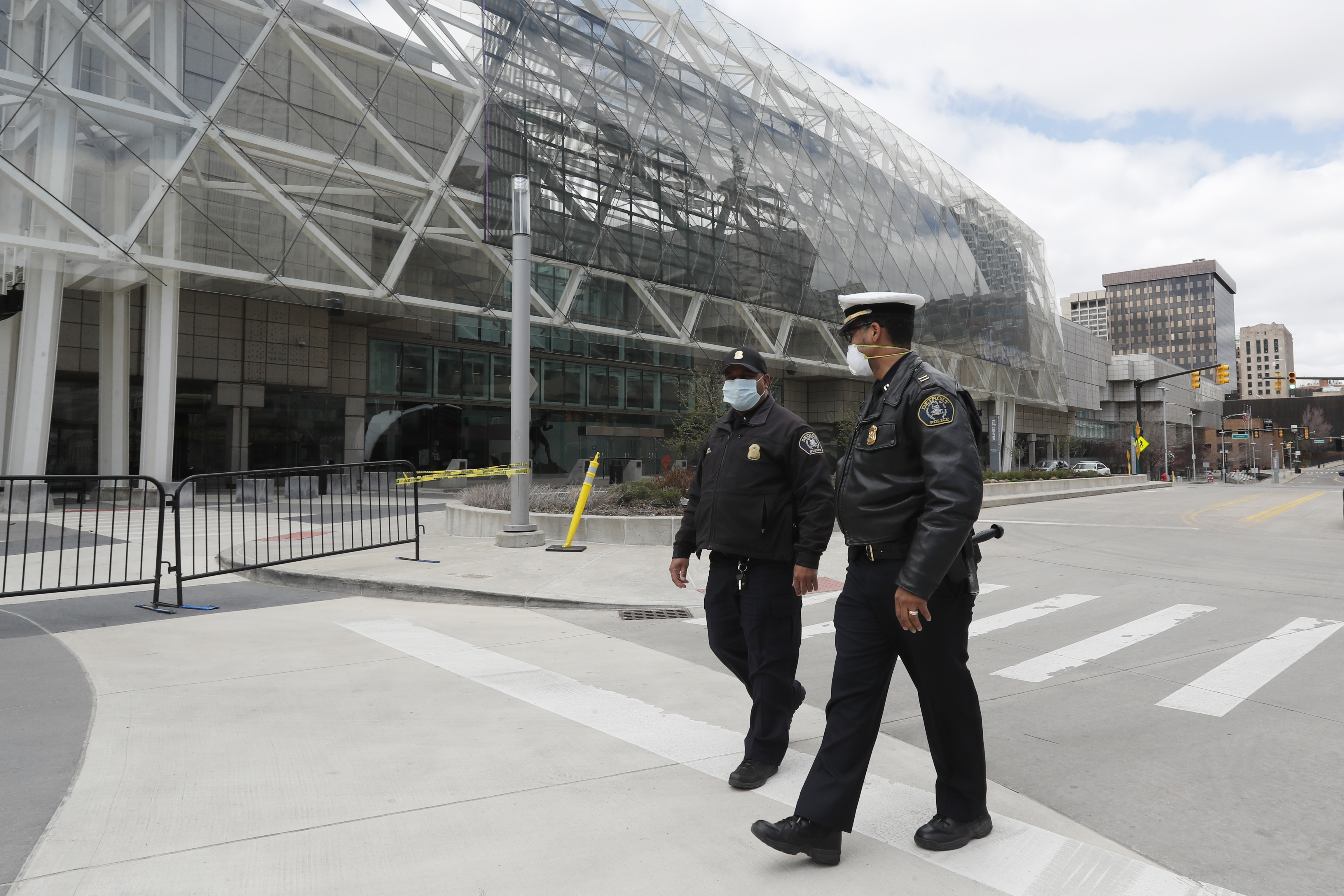
With the novel coronavirus pandemic keeping Americans indoors, preliminary data suggests it has led to a decrease in crime.
But one crime expert at West Virginia University cautions that “every crisis is an opportunity for people to discover themselves, and to reveal who they are to others.”
Serious felonies dropped 17 percent in New York City from March 16 to March 22 compared to last year, according to The Wall Street Journal. Chicago homicides dropped 29 percent the week of March 21, the day an Illinois stay-at-home order went into effect. And the Marshall Project, an online nonprofit that covers criminal justice news, reports that cities such as Detroit, Los Angeles and San Francisco have seen significant drops in crime reports.
“With so few people going out and the streets so empty and so many stores shuttered, it is not surprising that in many places the number of reported street crimes has declined,” said Henry Brownstein, distinguished research professor of sociology, has authored several books and journal articles on crime and violence, drug markets and drugs and society.
“But not all crime is street crime.”
Brownstein said the COVID-19 pandemic has provided a breeding ground for other types of criminal behavior, namely for opportunists taking advantage of the climate of panic and fear.
“There are people selling fake cures and false hope to others who are frightened by the pandemic,” he said. “There are people soliciting donations for charities they say are helping people affected by the virus, though the charities do not actually exist. There are people who hoarded things that are in demand during the crisis, including cleaning products and medical supplies, and are trying to sell them at exorbitant prices.”
Attorneys general across the U.S. have been busy investigating numerous price-gouging claims, and online retailers like Amazon and eBay have cracked down on sellers jacking up the prices of products such as masks and hand sanitizer.
The U.S. Department of Justice (DOJ) and the Securities and Exchange Commission are also investigating stock trades by members of Congress that were made before the market plummeted from the COVID-19 outbreak.
Brownstein, who previously worked at the National Institute of Justice at the DOJ, said the lawmakers may have traded stocks for personal gain based on information they received about coronavirus at non-public hearings.
Brownstein also expressed concerns that an uptick in domestic violence incidents could occur with more people staying at home.
“When families are confined to their homes, it becomes more apparent that home is not a safe place for everyone,” he said. “Women and children who are routinely abused and assaulted in their own homes are left alone with their abuser.”
Seattle, San Antonio and Portland have each received more than a 20 percent increase in domestic violence calls for March, according to those cities’ police departments, Mother Jones reports.
In addition, the FBI is predicting a surge in hate crime incidents against Asians and Asian-Americans. A recent federal intelligence report stated that the FBI based its assessment on a portion of the public associating COVID-19 with China and Asian populations.
“With all the fear around the spread of the virus and the anger around social distancing, some people are looking for someone to blame,” Brownstein said. “Think of the people you already hate, and blame them. More and more during the pandemic, hate has been an inspiration for criminal behavior. Since the virus was originally found in China, much of that hate, and the crime that goes with it, is predictably directed at Asians and Asian-Americans.”
Brownstein is hopeful, in a tongue-and-cheek way, that crime shall return to its rightful place once the pandemic ceases.
“The history of epidemics and pandemics tells us that one day we will have sufficient rapid testing procedures to help us determine who is infected and who is not. We will have a vaccine that people can be given on a regular basis to prevent infection. And maybe we will even have a treatment to treat people who are infected. Then we will be able to return to our old ways and habits, and can stop having to worry about COVID-19 all day every day. When that time comes, maybe crime will be normal again.”


